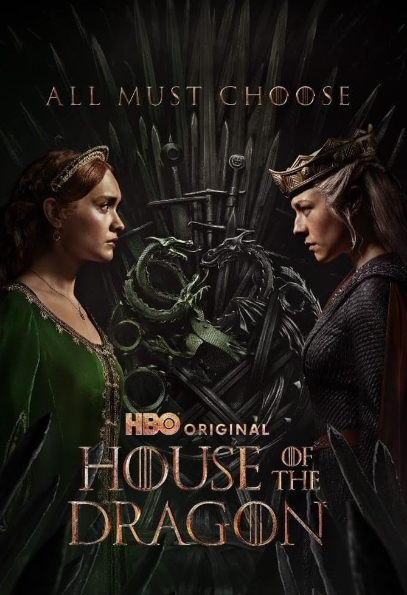
After two months of anticipation, “House of the Dragon,” the prequel to “Game of Thrones” that tells the royal family’s origin story, concluded its second season with the eighth episode. With a length of 73 minutes and an IMDb rating of 6.3/10, the season finale holds the show’s record for longest episode — and second lowest ratings. While it could have been the series’ bloody crescendo, its lack of conclusion reduces the finale to being a feature-length trailer for Season 3.
The finale embraces the newfound strength of protagonist and aspiring queen Rhaenyra Targaryen, played by Emma D’Arcy. With a title of “The Queen Who Ever Was,” the episode creatively foreshadows Rhaenyra’s great potential to become the first woman to inherit the Iron Throne. The title also serves as a comparison to her ancestor Rhaenys, who was given the humiliating moniker “the queen who never was” after failing to conquer the throne herself.
In Season 2, the kingdom suffers through the royal family’s violent dispute for the throne, and the estranged Rhaenyra slowly builds her military in preparation for an inevitable war. This excitement firmly suggests an epic season conclusion; however, the finale is anything but conclusive.
The finale fails to deliver on that promise of an epic conclusion. It abruptly removes conflict rather than resolving it, resulting in the previous episodes feeling completely unessential as their consequences were undone. Essentially, the audience is forced to traverse daunting obstacles to get from point A to point B, only for them to realize they have walked in a long and convoluted circle back to point A.
In contrast, the ending of Season 1 successfully set up the second season while satisfyingly concluding the first. With violence ensuing and Rhaenyra exiled, the prospect of war seemed imminent by the end. However, this cliffhanger is far less foreboding — and exciting — when it’s reused in Season 2.
In the finale’s defense, it is a fine episode on its own. While this season is rather uneventful, the plot developments are a recipe for a phenomenal third season: sides have been chosen, armies have been built and war is now imminent.
Moreover, there are many satisfying nods to the show’s venerated predecessor that are reason alone for any devoted fan to watch.
While it may procrastinate its conflict, the series manages to sustain its potential for the resolve that was promised. Overall, this season’s biggest problem is that it leaves the audience wanting more, which is a good problem to have.








